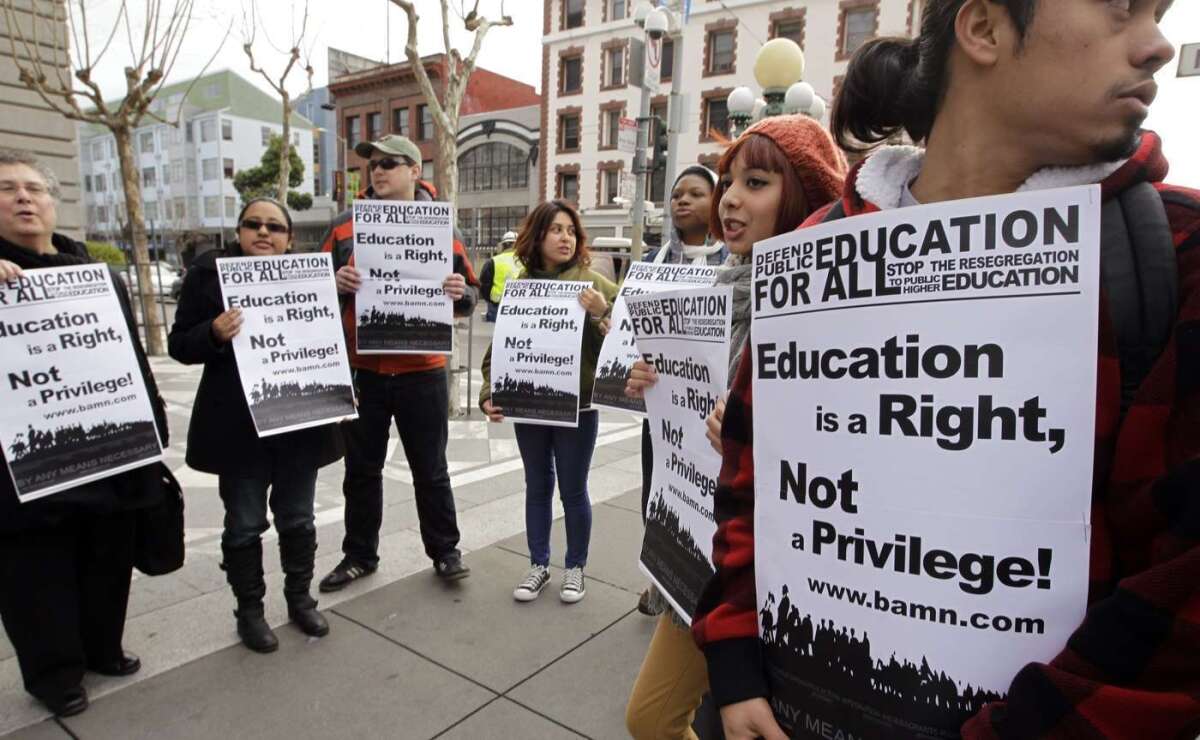Affirmative actionâs latest test

In 2006, Michigan voters banned affirmative action at the stateâs public universities. On Tuesday, the Supreme Court will hear arguments challenging that ban. If you support affirmative action, you must hope that the court will strike it down, right?
Alas, itâs not that simple. This case isnât about whether state universities may provide preferential treatment in their admissions policies. Rather, the question is whether the voters of Michigan violated the U.S. Constitution when they amended the state Constitution to say that universities âshall not discriminate against, or grant preferential treatment to, any individual or group on the basis of race, sex, color, ethnicity or national origin.â That is a much harder question.
This page supports affirmative action and opposed Proposition 209, the California ban on racial preferences on which the Michigan amendment was modeled. Racial preferences at highly selective public universities ensure a modicum of racial diversity at those institutions, and they make it possible for students from groups that historically have been victims of discrimination to move into leadership positions in society. The value of such policies is demonstrated by Californiaâs experience after the adoption of Proposition 209 in 1996. As The Times reported this year, African American freshmen at UCLA dropped from 7.1% of the class in 1995 to 3.6% in 2012. At UC Berkeley, African Americans made up 6.3% of freshmen in 1995 and 3.4% last fall.
Affirmative action policies also have passed muster at the Supreme Court. In June, in a case involving the University of Texas, the court made it clear that judges must scrutinize affirmative action programs to ensure that âno workable race-neutral alternatives would produce the educational benefits of diversity.â But if a university can meet that stringent test, racial preferences are permissible.
They are not, however, constitutionally required. So how can Michiganâs ban on racial preferences violate the Constitution, as affirmative action proponents argue â a conclusion accepted by the U.S. 6th Circuit Court of Appeals? Can it possibly be the case that the people of the state donât have the option of banning affirmative action?
The problem with the Michigan amendment, the 6th Circuit ruled, was that it âreorders the political process in Michiganâ in a way that discriminates against racial minorities. The appeals court noted that although a student seeking preference in admissions based on family connections had only to lobby university officials, an African American student hoping to benefit from a race-conscious admissions policy would have to try to amend the state Constitution, âa lengthy, expensive and arduous process.â
This is an ingenious argument, and it didnât come from thin air. Twice the Supreme Court has struck down measures that made it harder for minorities to achieve their goals by placing an onerous political burden on them that doesnât apply to others. One was an Akron, Ohio, city charter amendment requiring that fair housing legislation be approved by a referendum. The other was a Washington state referendum that prevented school busing for racial integration but allowed school districts to order it for other purposes.
But the state of Michigan argues persuasively that neither of those precedents undermines its ban on racial preferences. The Akron amendment thwarted laws designed to provide equal access, not to provide preferential treatment. And though the busing programs targeted by Washington state were designed to integrate classrooms, they did not involve racial preferences. Finally, itâs questionable whether admissions decisions at Michigan universities are really part of a âpoliticalâ process.
Beyond these specific legal arguments, the opponents of Michiganâs ban are seeking to set aside a state constitutional amendment that was approved by the voters. We donât believe that ballot initiatives are sacrosanct. If they violate constitutional rights â as we believe Proposition 8âs ban on same-sex marriage did â they should be struck down. But bans on racial preferences at state universities, in Michigan or in California â while bad policy â donât violate the Constitution. They should be undone at the ballot box, not by the courts.
More to Read
A cure for the common opinion
Get thought-provoking perspectives with our weekly newsletter.
You may occasionally receive promotional content from the Los Angeles Times.










